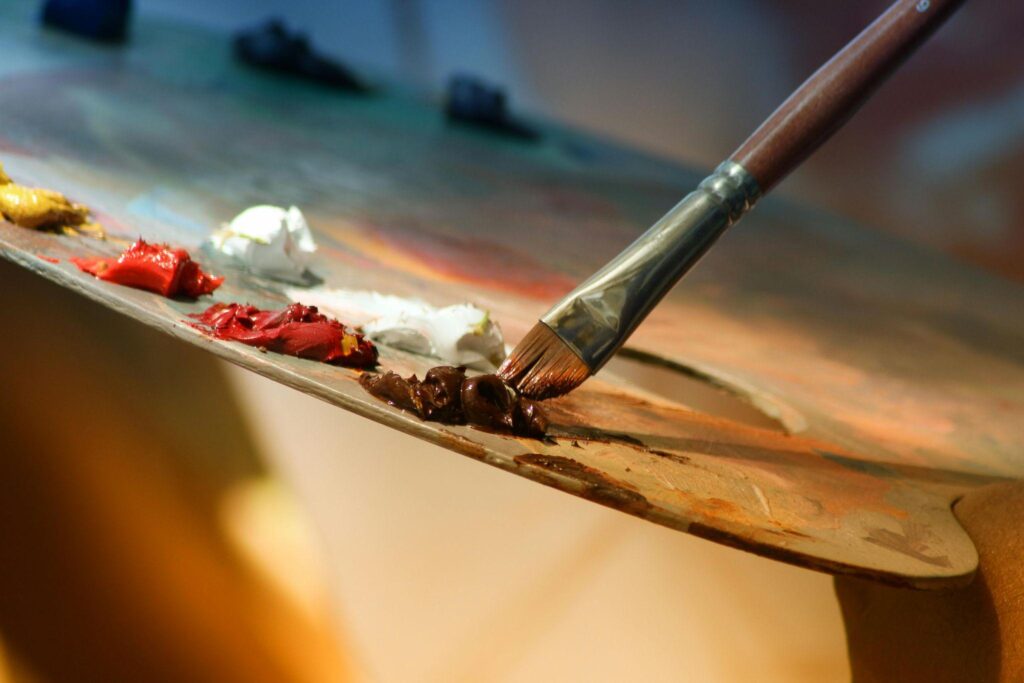
Art therapy is a dynamic therapeutic approach that harnesses the creative process to promote healing and personal growth, particularly in the context of addiction recovery. Rooted in the early 20th century, art therapy history reveals its evolution from a practice employed by artists and psychiatrists to a recognized interdisciplinary field. Pioneers such as Margaret Naumburg and Edith Kramer contributed significantly by integrating psychological theories into artistic expression, establishing foundational art therapy theories that emphasize the transformative power of creativity.
Various theories underpin the practice, including psychodynamic, humanistic, and cognitive-behavioral frameworks. These theories highlight the ability of artistic expression to facilitate emotional release, improve self-awareness, and nurture interpersonal connections. In addiction recovery, art therapy serves as a non-verbal medium, enabling individuals to explore their emotions and experiences related to substance use, often providing a safe space for reflection and communication. Consequently, those in recovery can confront their struggles more openly, paving the way for personal insight and healing. Ultimately, understanding the history and theoretical frameworks of art therapy enriches its application, making it an essential component of holistic addiction treatment approaches.
Benefits of Art Therapy
Numerous benefits arise from incorporating art therapy into addiction recovery programs, making it a valuable tool for individuals seeking healing. One of the primary art therapy benefits is its ability to facilitate emotional expression. Many individuals in recovery struggle to articulate their feelings verbally, and art provides an alternative medium through which they can explore and communicate complex emotions. This process cultivates self-awareness, allowing clients to confront and process their experiences in a safe, non-threatening environment. Moreover, art therapy improves emotional resilience. By engaging in creative activities, individuals develop coping strategies that can help them manage stress and triggers associated with addiction.
The act of creating art can be meditative, promoting mindfulness and relaxation, which are vital for maintaining sobriety. Furthermore, art therapy encourages a sense of accomplishment and boosts self-esteem. Completing a piece of art can instill pride in individuals, reinforcing their sense of identity beyond addiction. Ultimately, the integration of art therapy into recovery programs not only supports emotional healing but also empowers individuals on their journey toward lasting recovery and personal growth.
Techniques Used in Art Therapy
Art therapy employs a variety of techniques that harness the power of creative expression to support individuals in addiction recovery. The art-making process serves not only as a medium for self-exploration but additionally as a catalyst for emotional healing. Techniques such as drawing, painting, sculpting, and collage are commonly utilized, allowing for a diverse range of emotional expression that transcends verbal communication. Clients are encouraged to create freely, without judgment or expectation, which can lead to profound insights about their feelings and experiences.
Creative expression through various techniques in art therapy offers profound benefits for individuals in addiction recovery. Engaging in artistic endeavors cultivates artistic mindfulness, allowing individuals to immerse themselves in the present moment. This focused attention can serve as a powerful tool for grounding, helping them navigate the turbulent emotions often experienced during recovery. Moreover, art therapy facilitates an expressive release, enabling participants to communicate feelings and experiences that may be challenging to articulate verbally. Through painting, drawing, or sculpting, individuals can visualize their struggles, transforming abstract pain into tangible forms. This process not only aids in emotional processing but also encourages self-discovery and insight.

Final Thoughts
Art therapy emerges as a transformative tool in addiction recovery, facilitating profound emotional healing and self-exploration. By leveraging creative expression, individuals can navigate their inner turmoil, boost resilience, and nurture mindfulness. The integration of art therapy with traditional therapeutic practices not only enriches recovery experiences but additionally promotes community and connection among participants. As the field continues to evolve, the potential for art therapy to significantly impact recovery outcomes remains promising and warrants further exploration and implementation. Embrace the challenging yet rewarding journey to recovery. Lean on your support system and remain determined to regain control of your life. Faith Recovery offers compassionate addiction treatment with personalized programs, fostering a supportive environment for a brighter future. If you or someone you know is struggling, reach out to Faith Recovery for a confidential consultation and take the first step towards a healthier life.
Frequently Asked Questions
How Long Does an Art Therapy Session Typically Last?
Typically, an art therapy session lasts between 60 to 90 minutes. This session duration allows participants to engage meaningfully with creative processes, maximizing therapeutic benefits as they encourage emotional expression and personal insight throughout the experience.
Can Art Therapy Be Used Alongside Traditional Therapy Methods?
Art therapy can effectively complement traditional therapy methods through integrative approaches, nurturing emotional expression. By combining techniques, individuals can improve their therapeutic experience, promoting deeper insights and facilitating healing in a holistic manner.
What Materials Are Commonly Used in Art Therapy Sessions?
Common materials in art therapy sessions include paints, pastels, clay, and collage materials. These therapeutic tools facilitate creative expression, allowing individuals to explore emotions, improve self-awareness, and communicate experiences in a non-verbal, transformative manner.
Is Prior Artistic Experience Required for Participating in Art Therapy?
Prior artistic experience is not required for participating in art therapy. The focus is on personal artistic expression and emotional release, allowing individuals to explore their feelings and experiences in a supportive, non-judgmental environment.
Are There Any Age Restrictions for Art Therapy in Addiction Recovery?
Age restrictions for art therapy typically depend on the specific program and its goals. Accessibility options guarantee that individuals of all ages can participate, encouraging age appropriateness as well as promoting emotional expression and healing through creative modalities.